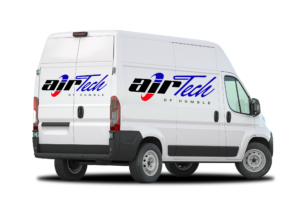Okay, so the saying is a tad distorted, but it does raise an important question. When considering options, is it best to replace your AC unit even if it’s not broken? What factors do you weigh?
Although the cost of purchasing a new air conditioner can be considered a big investment, so can the costs of having an older, inefficient unit that needs repairs all too often. While there’s no definitive rule, there are some important considerations to keep in mind while you make your decision.
Age of Existing Unit
Gauge the condition of your existing unit. The average lifespan of an air conditioning unit is around 10 years. If it’s around this age, you can expect frequent repairs, leaks, and possible breakdowns.
Cost of Repairs
The rule of thumb is if repairs exceed 50% percent of the cost of a new unit, then it’s time to replace. You could be certain that even after one expensive repair the next will be just as much if not more. In some cases, repairing a leak, adding refrigerant, and replacing a compressor can add up to the same amount as a new low-end unit.
Energy Efficiency
You might want to replace your unit if your existing unit still uses R-22 Freon. This refrigerant is being phased out by the federal government in order to conserve energy nationwide. As a result, HVAC manufacturers have stopped making units that require R-22 in 2015 and since then the costs of Freon have aggressively peaked. Acquiring a more efficient unit will help reduce energy costs and allows for eligibility on state and local tax credits.
Size and Capacity
Depending on home improvements you’ve made to your home, like roofing, insulation, or replacing windows, you may be able to downgrade to a smaller unit. Some contractors may have over or underestimated the calculation on the size of the equipment your property needs causing your HVAC system to overwork causing wear of equipment and inefficiency. A consultation may be able to confirm that your unit is not adequately sized in comparison to the overall amount of living space. Making this change could ultimately provide better comfort and a lower operating cost.
Outdated Technology
Replacing aging equipment and installing new features like smart thermostats could help increase efficiency and lower energy costs by 15-20%.
Financial Circumstances
If you don’t plan on staying in your home in the near future, there wouldn’t be a need to replace it immediately. Either you could better market your house with the new unit or lower asking price during negotiations. This investment is entirely up to you.
Whether you choose to replace or repair your existing unit, Air Tech of Humble can help evaluate your specific HVAC needs by scheduling a consultation today.









